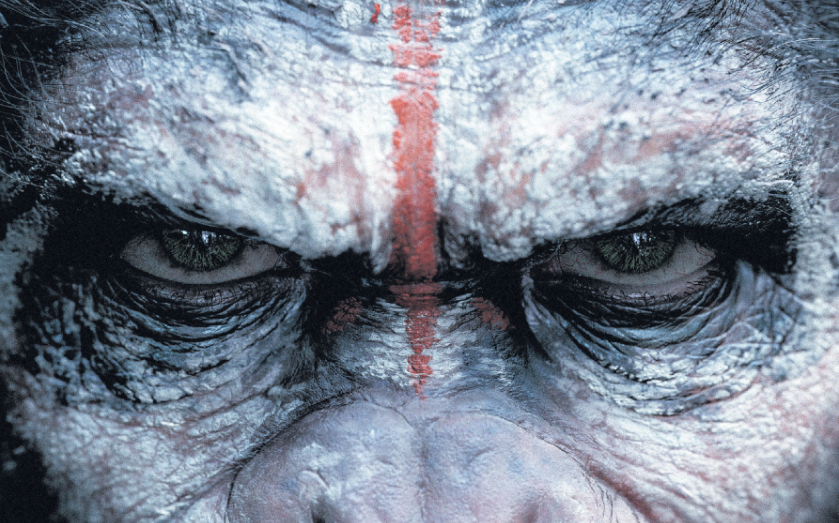Review: Dawn of the Planet of the Apes

Dawn of the Planet of the Apes sees the latest franchise edge closer to the dystopian world envisioned in the 1968 original. Humanity is all but extinct after a pandemic of simian flu, which had the double-whammy effect of killing all but one in 500 people and making apes super-intelligent. Sometimes you just can’t catch a break.
Ten years have passed since then and the apes have established a kind of rudimentary feudal society, led by the appropriately-named Caesar. They live in tree houses reminiscent of the Ewok’s home world of Endor and are now essentially human, shirking their millennia-old mating habits to form nuclear families. Problems arise when the last known vestige of humanity must cross ape territory to fix a hydroelectric dam that is their last hope of holding together a semblance of civilization.
At its heart, Dawn of the Planet of the Apes an anti-war parable. At every turn, the tantalising chance of peace between humans and apes is thwarted by acts of violence, carried out in the name of fear or revenge. “They’re just like us”, it says, over and over again, “why, oh why must there be war?”
The action is split fairly evenly between the apes in their Jungle Jim and the humans, who live in a derelict building in San Francisco. Not since 2001: A Space Odyssey have chimps commanded so much screen time. Director Matt Reeves bravely – and wisely – refuses to take sides. The humans are broken and desperate; everyone has lost children or parents or siblings to simian flu. They’re frightened and trigger-happy, and still harbour a superiority complex over their arboreal cousins. The apes, meanwhile, don’t trust humans – they remember being locked in cages and experimented on, which they are still kind of mad about.
This intriguing premise, combined with some first-rate special effects, would appear to set up a canny sci-fi adventure. The problem is, simian flu seems to have targeted anyone with a sense of humour. The humans are a po-faced bunch, none more so than the hero of the piece: a glassy-eyed architect called Malcolm who is so interminably sincere I found myself wishing monkey-violence upon him.
At this point it’s customary to praise Andy Serkis for bringing to life some bestial creature or other, be it a deformed elf or, in this case, an ape. But his king of the swingers appears to have evolved every human trait except a personality. He’s probably the dullest genetically modified, hyper-intelligent monkey to grace the big screen. His dialogue can be summed up thusly: “Caesar no trust humans… OK, Caesar trust humans now… Wait, Caesar no trust humans again…[repeat ad infinitum]”.
Reeve’s film gets many things right – great set pieces, brilliant special effects, a commendably bleak tone – but it seems so intent on striving for realism that it ends up being rather dull.
